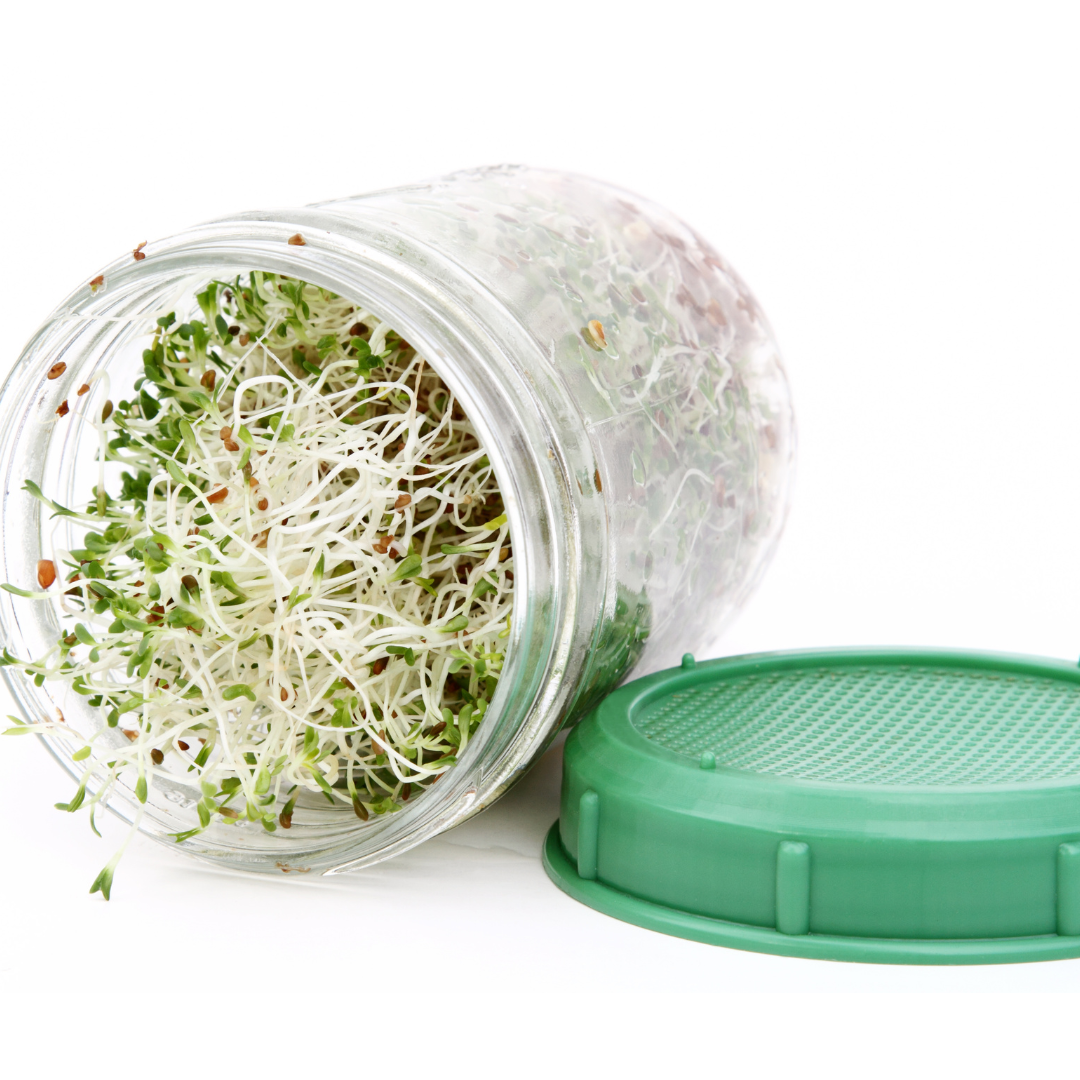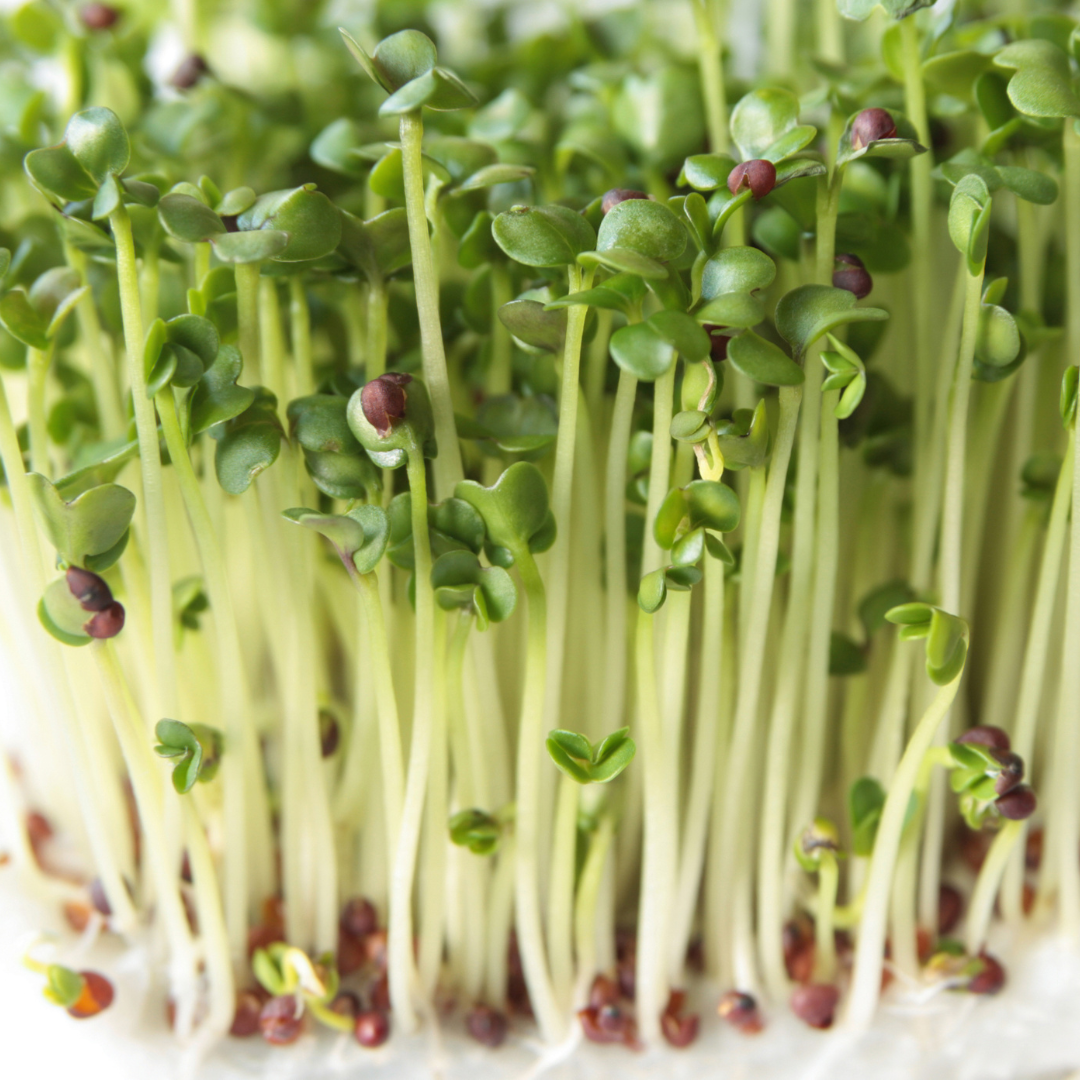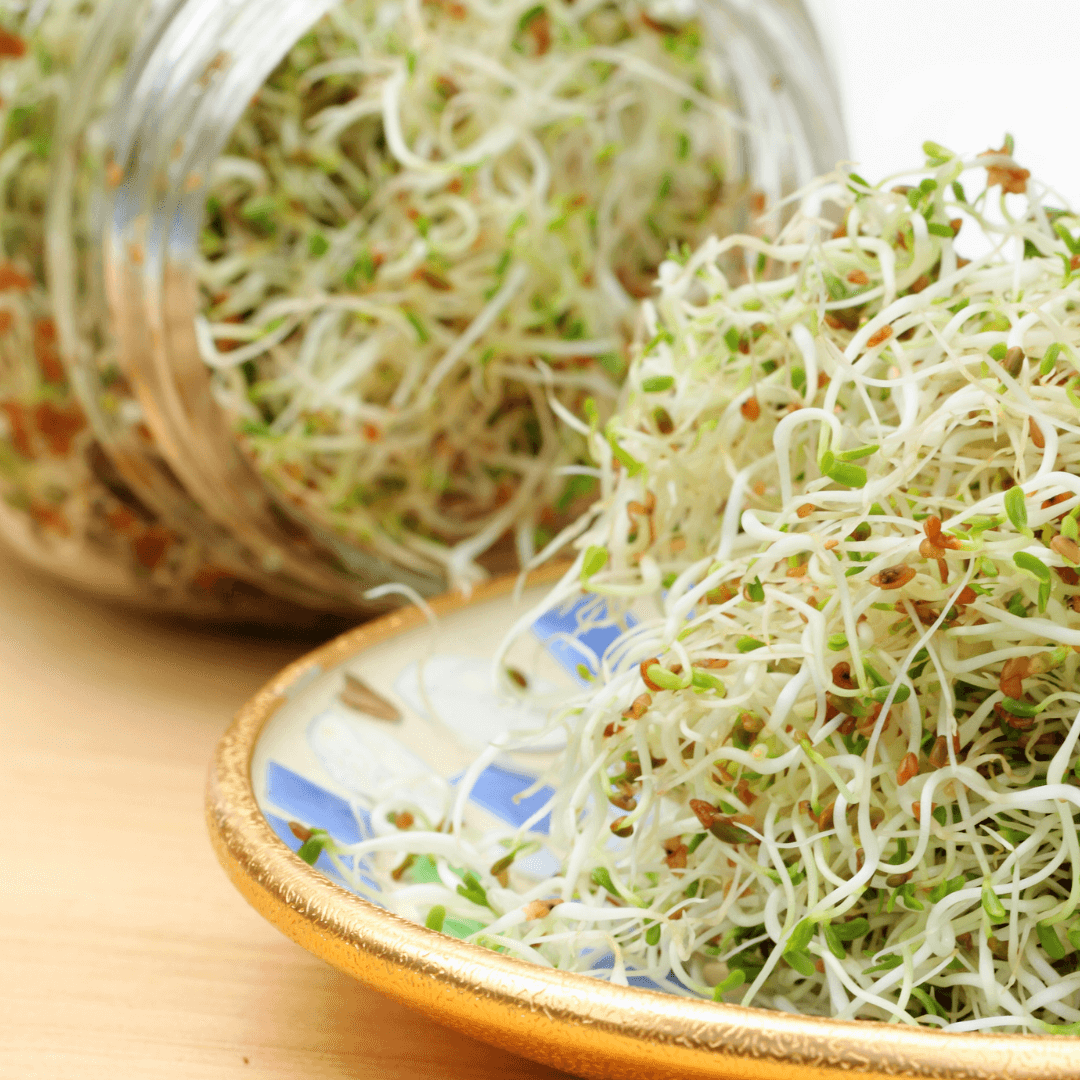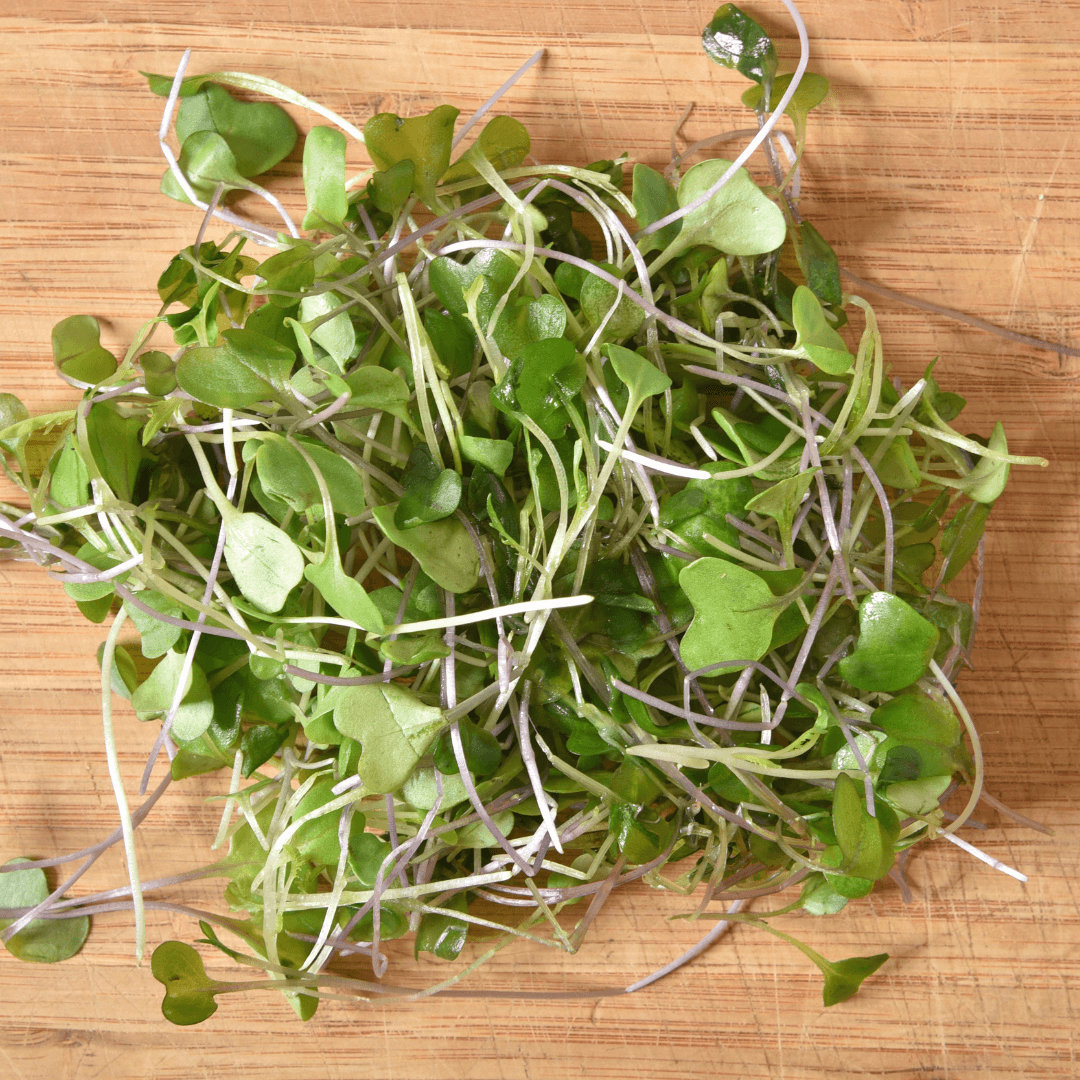Broccoli sprouts are an excellent source of nutrition and have gained popularity over the years due to their high concentration of sulforaphane, a compound known to have anti-cancer and anti-inflammatory properties. Growing broccoli sprouts at home is a fun and easy way to enjoy their health benefits, and it's also a great way to ensure you're getting fresh, organic sprouts without any added chemicals. In this article, we'll show you how to grow broccoli sprouts at home using different methods.
What are Broccoli Sprouts?
Broccoli sprouts are young, tender broccoli plants that are typically harvested after 3-5 days of germination. These sprouts are packed with nutrients such as vitamins C and K, folate, fiber, and minerals like potassium, phosphorus, and magnesium. They are also rich in sulforaphane, a powerful antioxidant that has been linked to many health benefits.
Health Benefits of Broccoli Sprouts
Broccoli sprouts are part of the cruciferous vegetable family, which also includes cauliflower, kale, and Brussels sprouts. These vegetables are known for their numerous health benefits, including:
- Lowering the risk of cancer
- Boosting the immune system
- Reducing inflammation
- Promoting heart health
- Supporting detoxification
Broccoli sprouts, in particular, have been shown to have a higher concentration of sulforaphane than mature broccoli, making them an excellent source of this powerful compound.
Different Methods to Grow Broccoli Sprouts
There are different methods you can use to grow broccoli sprouts at home, depending on your preferences and available resources. Here are some of the most popular methods:
Sprouting Jars with Mesh Lid
One of the easiest and most popular methods to grow broccoli sprouts is using a sprouting jar with a mesh lid. Here's how to do it:
- Add two tablespoons of broccoli seeds to the jar and cover them with room-temperature water.
- Let the seeds soak for 8-12 hours, then drain the water through the mesh lid.
- Rinse the seeds with fresh water and drain again.
- Place the jar upside down at a 45-degree angle to let any excess water drain out.
- Rinse the seeds twice a day, every 12 hours, for 3-5 days or until the sprouts are fully grown.
Waltham 29 Broccoli Sprouting Seeds - 1 Pound

$14.95
$19.95
Waltham 29 Broccoli Sprouting Seeds for Nutrient-Packed Microgreens - Heirloom, Non-GMO, Open-Pollinated, Non-Hybrid Discover the joy of growing your own Waltham 29 Broccoli Sprouts, a powerhouse of flavor and nutrition. These heirloom, non-GMO, non-hybrid, and open-pollinated seeds are perfect for… read more
Sprouting Jars with Sprouting Lid
Another option is to use a sprouting jar with a sprouting lid, which makes the rinsing process easier. Here's how to use it:
- Add two tablespoons of broccoli seeds to the jar and cover them with room-temperature water.
- Let the seeds soak for 8-12 hours, then drain the water through the sprouting lid.
- Rinse the seeds with fresh water using the sprouting lid, then drain again.
- Place the jar upside down at a 45-degree angle to let any excess water drain out.
- Rinse the seeds twice a day, every 12 hours, for 3-5 days or until the sprouts are fully grown.
Paper Towel Method
If you don't have a sprouting jar, you can still grow broccoli sprouts using a paper towel. Here's how:
- Moisten a paper towel and place it on a plate.
- Scatter two tablespoons of broccoli seeds on the paper towel, leaving some space between them.
- Cover the seeds with another moist paper towel.
- Place the plate in a warm, dark place for 3-5 days, keeping the paper towels moist.
- Once the sprouts are fully grown, remove them from the container.
Growing Broccoli Sprouts: Step by Step
Now that we've gone over the different methods, let's walk through the steps of growing broccoli sprouts using the sprouting jar with a mesh lid method:
- Add two tablespoons of broccoli seeds to the sprouting jar and cover them with room-temperature water.
- Let the seeds soak for 8-12 hours, then drain the water through the mesh lid.
- Rinse the seeds with fresh water and drain again.
- Place the jar upside down at a 45-degree angle to let any excess water drain out.
- Rinse the seeds twice a day, every 12 hours, for 3-5 days or until the sprouts are fully grown.
- Once the sprouts are fully grown, remove the mesh lid and rinse the sprouts thoroughly to remove any remaining seed husks or excess water.
- Store the fresh sprouts in an airtight container in the refrigerator for up to a week.
Tips for Growing Broccoli Sprouts
- Always use fresh, high-quality broccoli seeds to ensure a successful sprouting process.
- Make sure to rinse the seeds thoroughly with fresh water and drain any excess water to prevent mold growth.
- Keep the sprouting jar or plate in a warm, dark place away from direct sunlight.
- Rinse the sprouts twice a day, every 12 hours, to ensure they stay moist and don't dry out.
- Use a mesh lid or sprouting lid to make the rinsing process easier and prevent the seeds from falling out.
- Once the sprouts are fully grown, rinse them thoroughly to remove any remaining seed husks or excess water before storing them in the refrigerator.
Choosing the Right Seeds
Not all broccoli seeds are created equal when it comes to sprouting. To ensure successful sprouting, look for organic, non-GMO seeds that are specifically labeled for sprouting. These seeds have been tested for high germination rates and are free of harmful chemicals that can affect the sprouting process.
Water Quality
The quality of water you use for sprouting can also impact the success of your sprouts. Use filtered water or spring water that is free of chlorine or other harmful chemicals that can affect the flavor and quality of the sprouts.
Temperature
Broccoli seeds sprout best at room temperature, which is around 70-75°F (21-24°C). If your home is cooler, consider using a seedling heat mat to provide the optimal temperature for sprouting.
Excess Water
Excess water is the enemy of sprouts and can lead to mold growth and spoilage. Make sure to drain any excess water from the sprouting jar or plate after rinsing and keep the sprouts in a well-ventilated area to prevent moisture buildup.
Mature Broccoli
If you're growing broccoli sprouts for the first time, it can be tempting to let them grow longer to see what happens. However, letting the sprouts grow too long can lead to bitter and tough sprouts. Aim to harvest your sprouts when they are around 1-2 inches long, which usually takes around 3-5 days.
Using Broccoli Sprouts
Once you've grown your delicious broccoli sprouts, there are many ways to enjoy them. Here are some ideas:
- Add them to sandwiches, wraps, and salads for a nutritious crunch
- Use them as a topping for avocado toast or scrambled eggs
- Blend them into smoothies for added nutrition
- Use them as a garnish for soups and stews
- Enjoy them as a snack on their own
Benefits of Growing Broccoli Sprouts at Home
Growing broccoli sprouts at home offers many benefits beyond their nutritional value. Here are some reasons to consider growing your own:
- You can control the quality of the sprouts and ensure they are organic and free of chemicals.
- It's cost-effective and can save you money compared to buying fresh sprouts at the grocery store.
- You can grow a small or large amount depending on your needs, without worrying about waste or spoilage.
- It's a fun and educational activity for kids and adults alike and can help you appreciate the process of growing your own food.
Final Thoughts
Growing broccoli sprouts at home is a simple and rewarding way to enjoy the nutritional benefits of these delicious sprouts. With a little patience and some basic supplies, you can easily grow fresh sprouts in the comfort of your own home. Follow the tips and methods outlined in this article to learn how to grow broccoli sprouts at home and enjoy their health benefits in a variety of dishes.
Waltham 29 Broccoli Sprouting Seeds - 1 Pound

$14.95
$19.95
Waltham 29 Broccoli Sprouting Seeds for Nutrient-Packed Microgreens - Heirloom, Non-GMO, Open-Pollinated, Non-Hybrid Discover the joy of growing your own Waltham 29 Broccoli Sprouts, a powerhouse of flavor and nutrition. These heirloom, non-GMO, non-hybrid, and open-pollinated seeds are perfect for… read more
Frequently Asked Questions
- What is the best method for growing broccoli sprouts at home?
The best method for growing broccoli sprouts at home depends on personal preference and available resources. The most popular methods include using a sprouting jar with a mesh lid, a sprouting jar with a sprouting lid, or the paper towel method.
- Where can I buy broccoli seeds for sprouting?
Broccoli seeds for sprouting can be found at health food stores, online retailers, or through seed companies that specialize in sprouting seeds.
- How long does it take to grow broccoli sprouts?
Broccoli sprouts typically take 3-5 days to fully grow, depending on the method and environmental factors such as temperature and humidity.
- Can I use regular broccoli seeds from the grocery store to grow sprouts?
It's not recommended to use regular broccoli seeds from the grocery store to grow sprouts as they may be treated with chemicals or pesticides that can affect the sprouting process and the quality of the sprouts.
- How often should I rinse my broccoli sprouts?
It's recommended to rinse your broccoli sprouts twice a day, every 12 hours, to keep them moist and prevent mold growth.
- How do I know when my broccoli sprouts are ready to harvest?
Broccoli sprouts are ready to harvest when they are around 1-2 inches long, which usually takes around 3-5 days.
- How should I store my broccoli sprouts?
Once harvested, rinse your broccoli sprouts thoroughly and store them in an airtight container in the refrigerator for up to a week.
- Are there any safety concerns when growing broccoli sprouts at home?
There is a small risk of bacterial contamination when growing sprouts at home, so it's important to follow proper hygiene and safety practices such as using clean equipment, washing your hands thoroughly, and using high-quality seeds.
- What are some common mistakes to avoid when growing broccoli sprouts?
Some common mistakes to avoid when growing broccoli sprouts include using low-quality seeds, overwatering or under-watering, exposing the sprouts to direct sunlight, and letting the sprouts grow too long.
- Can I use the leftover seeds from my sprouting jar to grow more sprouts?
It's not recommended to reuse the leftover seeds from your sprouting jar as they may have absorbed excess moisture and may not sprout properly in subsequent batches. It's best to start with fresh seeds for each batch of sprouts.









